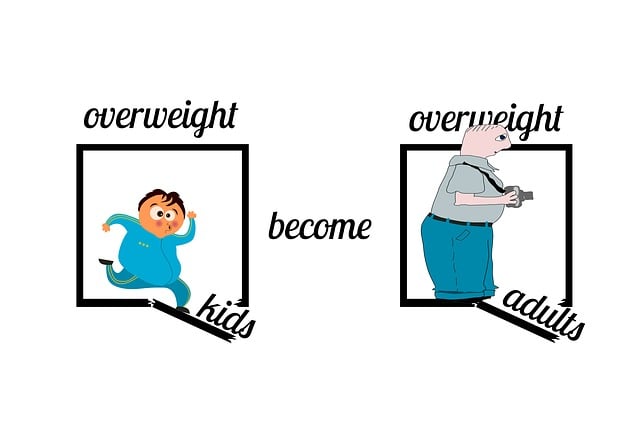Doctor-supervised weight loss programs are key to effective, personalized, and sustainable weight management. These programs consider individual factors like metabolism, dietary preferences, activity levels, and medical history to create tailored interventions. By combining nutrition, exercise, and behavioral modification, these programs promote holistic lifestyle changes for long-term success, empowering patients to achieve their weight goals while improving overall health and well-being.
In today’s diverse healthcare landscape, one-size-fits-all approaches to weight loss are increasingly outdated. Understanding that each patient has unique needs, preferences, and circumstances, adopting patient-specific strategies for effective weight loss is crucial. This article explores the rationale behind individualized weight loss plans, emphasizing the role of doctor-supervised programs in personalized healthcare. We delve into assessing patient needs, designing comprehensive approaches that include nutrition, exercise, and behavior modification, as well as tailored meal plans and adherence support to ensure long-term success.
Understanding Individualized Weight Loss: The Rationale Behind Patient-Specific Strategies

Weight loss is a highly personalized journey, and one-size-fits-all approaches often fall short. This is where patient-specific strategies for weight loss come into play, offering tailored solutions for each individual’s unique needs. The concept is grounded in the understanding that every person has distinct health histories, body types, and lifestyle factors that influence their path to a healthier weight.
Doctor-supervised weight loss programs recognize these variations and design interventions accordingly. By considering aspects like metabolism, hormonal balance, dietary preferences, and activity levels, healthcare professionals can create personalized plans. Such strategies ensure that the process is not just effective but also sustainable in the long term, addressing the root causes of weight gain rather than merely offering temporary fixes.
Role of Doctor-Supervised Weight Loss Programs in Personalized Healthcare

In today’s healthcare landscape, doctor-supervised weight loss programs play a pivotal role in personalized healthcare for effective and sustainable weight management. These programs recognize that each patient has unique needs, goals, and challenges when it comes to losing weight. By providing tailored strategies, doctors can offer more than just general advice; they deliver a comprehensive approach that addresses individual factors influencing weight gain. This includes evaluating medical history, assessing current health status, and considering lifestyle aspects such as diet, exercise, and sleep patterns.
Doctor-supervised programs ensure that every step of the weight loss journey is guided and supported. Patients benefit from regular check-ins with healthcare professionals who can monitor progress, adjust strategies as needed, and provide essential education. This personalized approach not only enhances the likelihood of success but also fosters a deeper understanding of one’s body and promotes long-term healthy habits.
Assessing Patient Needs: Identifying Factors for Customized Weight Loss Plans

Effective weight loss begins with a thorough assessment of the patient’s unique needs and circumstances. This involves delving into their medical history, current lifestyle, dietary preferences, and any specific challenges or goals they have in mind. Patient-centric strategies recognize that everyone’s journey to healthier living is distinct. Factors like age, gender, genetics, and overall health play a significant role in determining the most suitable approach.
Doctors and healthcare professionals design personalized weight loss plans by considering these variables. This customization ensures that doctor-supervised weight loss programs are tailored to be both achievable and sustainable for each individual. By addressing specific needs, patients are more likely to adhere to their program, leading to better outcomes and a higher chance of long-term success in managing their weight.
Designing a Comprehensive Approach: Nutrition, Exercise, and Behavior Modification

When designing a patient-specific strategy for effective weight loss, it’s essential to adopt a comprehensive approach that integrates nutrition, exercise, and behavior modification. Doctor-supervised weight loss programs typically take a holistic view, recognizing that sustainable weight management involves more than just dieting; it requires a balanced lifestyle shift. Nutrition plans tailored by healthcare professionals focus on portion control, macro-nutrient balance, and meal frequency to ensure patients receive the right amount of calories and nutrients while promoting long-term health.
Exercise plays a crucial role in doctor-supervised weight loss programs, as it aids in burning calories, building muscle, and improving overall fitness. Incorporating both aerobic exercises like walking or running and strength training can significantly boost metabolic rate and enhance fat oxidation. Behavior modification techniques, such as cognitive-behavioral therapy, help patients understand their eating habits, identify triggers for overeating, and develop coping strategies to manage stress and cravings effectively.
Personalized Meal Plans: Tailoring Dietary Interventions for Optimal Results

In the quest for effective and sustainable weight loss, personalized meal plans play a pivotal role. Doctor-supervised weight loss programs recognize that one-size-fits-all approaches often fall short in achieving optimal results. By tailoring dietary interventions to an individual’s unique needs, preferences, and health status, these programs maximize adherence and success rates. Each person has distinct dietary requirements based on factors like age, gender, activity level, and underlying medical conditions.
A personalized meal plan considers these variables, ensuring the right balance of macronutrients and micronutrients to support weight loss while promoting overall health. Moreover, these plans account for individual taste preferences, cultural backgrounds, and lifestyle, making them more sustainable in the long term. This tailored approach not only enhances the effectiveness of weight loss but also fosters a healthier relationship with food, setting individuals up for success beyond their weight loss journey.
Incorporating Physical Activity: Creating an Exercise Routine Aligned with Patient Preferences

Incorporating regular physical activity is a cornerstone of successful, patient-specific weight loss strategies. Doctor-supervised weight loss programs often emphasize tailored exercise routines that align with individual preferences and fitness levels. This personalized approach ensures patients are more engaged and motivated to stick to their workout plans. By understanding a patient’s interests, whether it’s joining a dance class, hiking in nature, or participating in team sports, healthcare professionals can design an exercise regimen that not only promotes weight loss but also enhances overall well-being and quality of life.
Creating an exercise routine shouldn’t feel like a chore; it should be enjoyable. Patients are more likely to maintain consistency when their chosen activities spark enthusiasm and passion. Doctor-supervised programs often include guidance on gradual progression, ensuring patients start at a manageable intensity level and increase their efforts over time. This sustainable approach fosters long-term adherence, which is key to achieving and maintaining healthy weight loss goals.
Behavioral Support and Motivation: Strategies to Enhance Adherence and Long-Term Success

Behavioral support and motivation play a pivotal role in patient success within doctor-supervised weight loss programs. Personalized strategies tailored to individual preferences and lifestyles significantly enhance adherence to the program. Motivational interviewing, for instance, equips patients with skills to navigate ambivalence and strengthen commitment to their health goals. This technique helps individuals explore and resolve internal conflicts, fostering self-motivation and a sense of agency.
Additionally, behavioral activation techniques encourage patients to engage in activities that promote healthy habits. This may involve scheduling regular exercise, planning nutritious meals, or identifying and avoiding triggers for unhealthy behaviors. Regular feedback from healthcare professionals further reinforces positive changes, providing encouragement, addressing concerns, and adjusting strategies as needed to ensure long-term success.
Monitoring and Adjusting: Regular Assessments for Continuous Improvement

Effective weight loss requires continuous monitoring and adjustment, especially within doctor-supervised weight loss programs. Regular assessments allow healthcare professionals to track progress, identify areas for improvement, and tailor strategies accordingly. By setting specific goals, measuring key metrics like body mass index (BMI), waist circumference, and body fat percentage, doctors can ensure the program remains effective and safe.
Adjustments may include modifying diet plans, increasing or decreasing physical activity levels, or even switching to alternative treatments if needed. This dynamic approach ensures that each patient’s weight loss journey is personalized, accounting for unique factors like metabolism, lifestyle, and overall health. Regular feedback loops enable doctors to guide patients towards sustainable, long-term success rather than fleeting results.
